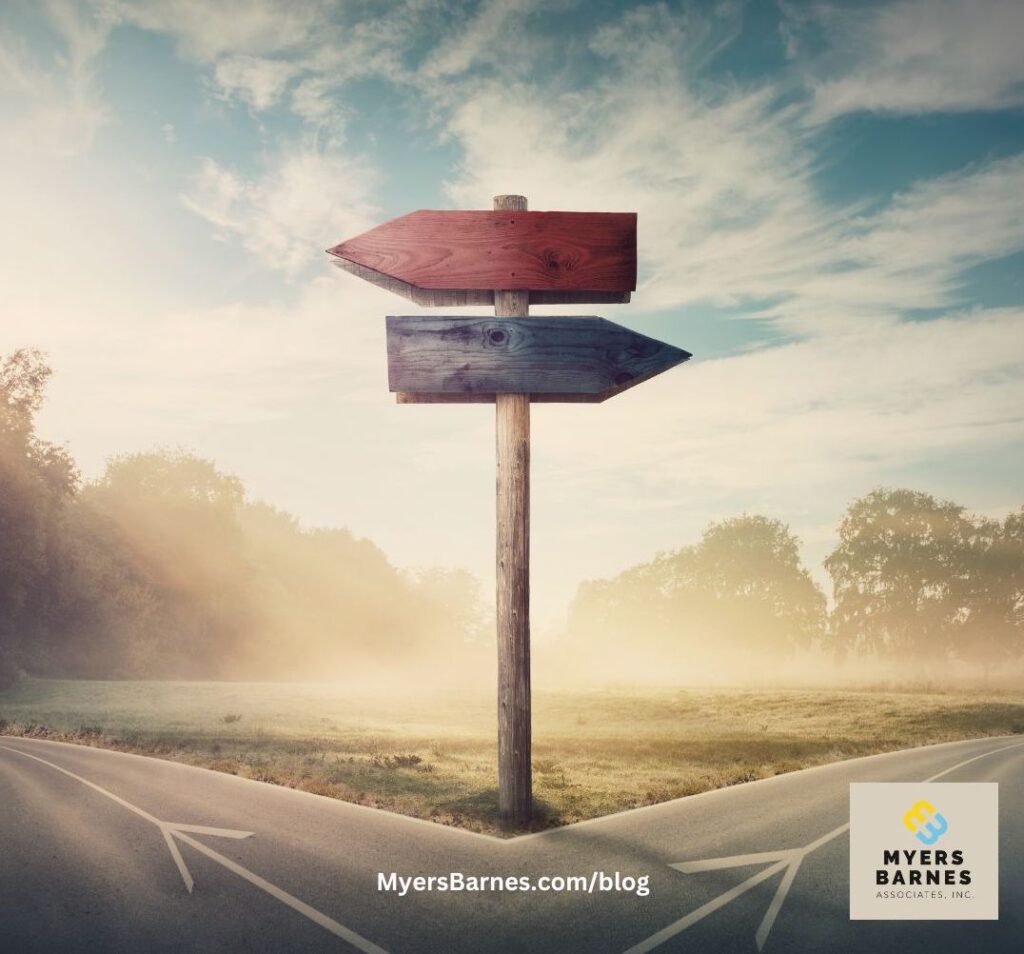
I’m writing this as the political campaign season comes to a close. We’ve all been asked to make a choice. Those who decided not to vote made a choice. Choosing NOT to do something is a choice. And we need to remind ourselves that life is by choice, not chance.
That’s the paradox of choice. Consciously or not, you make hundreds of choices every day. You decide to get out of bed, whether or not to have a second cup of coffee, which route to take, when to respond to texts and emails, and whom you’re going to deal with on any given day. When you’re trying to decide where to go for dinner or what show to watch and you tell someone, “I don’t care. You decide,” you’ve actually made a decision.
Technology has barraged us with even more choices to make. Which phone will you buy? What networks are you going to stream on the smart TV you just decided to buy? It’s compounded by the “convenience” that we’re no longer constrained by in-store choices. With a few taps on the aforementioned phone, we can get what we want delivered as quickly as the same day.
It’s not good luck or bad luck. You pave the way to your outcomes with the choices you make. Claiming “luck” wasn’t on your side is stepping back from your responsibility. Was there really nothing you could have done differently? Most likely, you just chose wrong—which is okay, because you’re human. Learn from your mistakes. Don’t dismiss them as out of your control.
When you blame Fate for your own fate in life, you essentially acknowledge you are powerless. Is that the life you want to live?
Not even when it’s life or death
Eight years ago, I was diagnosed with lung cancer. I wasn’t a smoker. But I made a decision to do what was necessary to battle the disease, whatever it took. I’m still here, and cancer-free.
A friend of mine said he was going to stop smoking for three months, to prove that he could. I said, “That’s not stopping. It’s pausing.”
Look at the failure of New Year’s resolutions. Think about all those people who vowed on December 31 to lose weight, be more active, eat healthier, and give up a bad habit. Gym memberships soar in January as a result. In February, attendance declines almost as dramatically. And how many people with weight loss goals actually achieve them?
According to a Johns Hopkins’ 10-year study, there’s a 90% probability that a person does not make a meaningful lifelong change. They might proceed with certain adjustments for a period of time, but will likely revert to the negative behavior, which is more comfortable for them. Comfort—the catalyst to missed opportunities.
Here are some other statistics that support the difficulty of achieving long-term change:
- 48% of smokers who underwent surgery for lung cancer returned to smoking within a year of the procedure.
- One out of four survivors of a heart attack or cardiac event fail to change the behaviors that contributed to that condition.
If you can’t make a good decision when your life depends on it, how will you handle the rest of your choices?
Choose to be better. Choose to be great.
I’ve been engaged by builders to provide a two-day sales training program to new home salespeople. I warn the sales manager that this short session will not deliver lasting results. Training is a start. Execution is critical. And that action comes in the form of daily choices.
You can’t change behavior in a day, but you can start. Humans are creatures of habit. You’ve developed habits over time, and one choice will not deliver the quick fix you’re hoping for. Commit to changing by looking at your choices and respecting the value of each one.
Choose to be better tomorrow than you are today. Then make every choice to follow that one.


